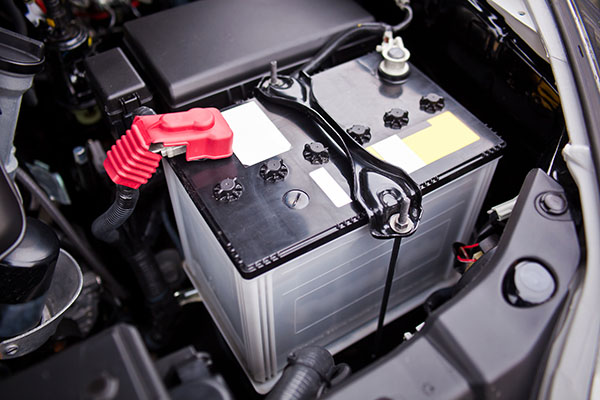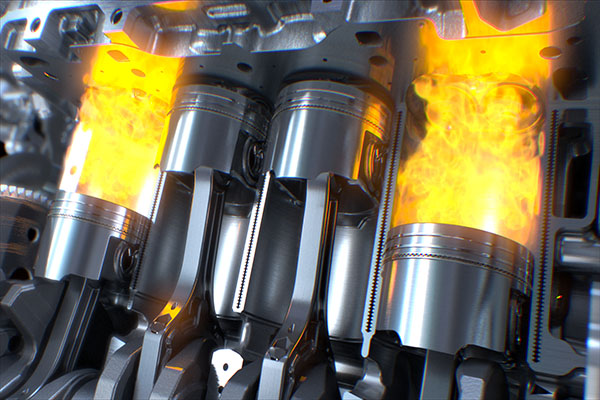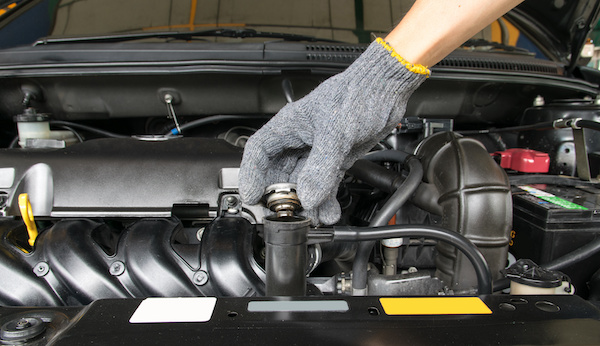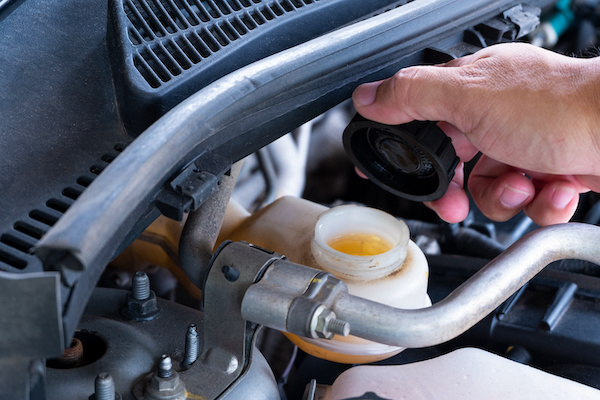Posted on 6/29/2023

Nestled in the picturesque region of Washington State, the Seattle area offers a gateway to breathtaking natural beauty. With its proximity to stunning destinations, residents and visitors are spoiled for choice when it comes to exploring the great outdoors. If you are traveling through Seattle or any other town in the area, make sure to visit these locations before you go home! 1. Mount Rainier National Park Located just southeast of Issaquah, Mount Rainier National Park beckons with its towering peaks, expansive meadows, and pristine glaciers. The park offers a range of outdoor activities, including hiking trails for all skill levels, picturesque viewpoints, and opportunities for wildlife spotting. Witness the splendor of the majestic Mount Rainier, standing as the centerpiece of the park, and be captivated by its snow-capped beauty. -Fun Fact: Mount Rainier National Park has over 15,000 positive reviews on Google Maps! ... read more
Posted on 5/31/2023

Have you ever wondered how a small, seemingly ordinary box tucked away in the engine bay of your car has the power to bring it to life? We're talking about car batteries, those unsung heroes of automotive technology that silently work their magic to keep our vehicles running smoothly. Overview: Basic Anatomy of a Car Battery Chemical Reaction What Does The Car Battery Do Exactly Basic Anatomy of a Car Battery If you want to know how something works, you first have to get to know its components. Here are the basics of a batteries parts: Case: The outer housing of the battery is usually made of durable plastic. Electrolyte: A mixture of sulfuric acid and distilled water, responsible for creating a chemical reaction. Plates: Lead plates immersed in the electrolyte, where the energy exchange occurs. Separators: Insulating material placed between the plates to prevent short cir ... read more
Posted on 4/30/2023

Audi is one of the most popular vehicle manufacturers. While it is owned by the VW Group, it differs from the other vehicles quite a lot, which makes it a favorite amongst the public. But what do all of the letters and numbers on their models mean? Well, we will take a closer look at exactly this, down below. Continue reading if you want to find out more about the meaning behind Audi's model labeling. "A" Models Models starting with the letter "A" are usually the most basic of the whole lineup. You can find sedans, coupes, and wagons under the "A" letter. After the letter, you can find a number, designated to the class of the vehicle, starting at 1 (being the least luxurious) and ending at 8 (which is the best of the "A" line). But don't get things mixed up; most basic doesn't mean worst; quite the opposite, actually. "Q" Models If you have looked at an SUV made by Audi, you have probabl ... read more
Posted on 3/30/2023

The differences between gasoline and diesel engines are quite big. From the way they ignite the fuel to the fuel itself and a lot more technical things. Besides their differences, there are benefits and drawbacks for both. In this blog, we will take a closer look at them so you have a better idea of what will work best for you. Pros And Cons of Gasoline Engines Gasoline engines work by compressing a mixture of air and fuel and then igniting it with an electrical pulse/spark. After the ignition, the mixture explodes, pushing the pistons down and rotating the crankshaft - producing, as we call it, horsepower. This process is quite complex compared to the diesel alternative and has its fair share of pros and cons. Here are some of them. Pros: More power output Cheaper fuel prices Advanced technology More high-end options Produces less harmful gasses Cons: High repair prices Less durable Needs frequent maintenance to function pr ... read more
Posted on 2/28/2023
.jpeg)
Gasoline and diesel vehicles are two popular options for drivers, but they differ in many ways. Here's a closer look at the key differences between gasoline and diesel vehicles: Fuel Type The most obvious difference between gasoline and diesel vehicles is the type of fuel they use. Gasoline vehicles run on gasoline, while diesel vehicles run on diesel fuel. Diesel fuel has a higher energy density and contains more energy per gallon than gasoline, which can result in improved fuel efficiency for diesel vehicles. Engine Design The engines of gasoline and diesel vehicles are also different. Diesel engines are typically more rugged and durable than gasoline engines and are designed to handle the high compression ratios and high fuel pressures that are required to run on diesel fuel. Diesel engines also tend to be more reliable than gasoline engines and require less maintenance. Fuel Economy Diesel vehicles generally offer better fue ... read more
Posted on 1/30/2023

Did you know that the warm air blowing through your vents this winter comes from your car engine? The engine cooling system is linked to the heating system. Therefore, when your car heater stops working or isn’t keeping you warm enough, you should have your cooling system checked out. Your vehicle’s heating system revolves around the heater core. The cooling system parts that play a part in bringing heat into the cabin include the coolant fluid, water pump, thermostat, and radiator. Coolant - Mix of antifreeze and water Water Pump - Pushes coolant to and out of the engine and radiator and heater core Thermostat - Monitors temperature and opens and closes accordingly to let coolant through the engine Radiator - Helps disperse engine heat When your engine generates a significant amount of heat, the cooling system helps move some of it out. While most of the heat is put through the exhaust system, some of it gets absorbed into the cooling system and brought t ... read more
Posted on 12/30/2022

Signs that your cooling system is struggling are simple to spot, but fixing the problem can take time and effort. Many car owners overlook these early signs, which means that sooner or later, there will be a lot of misery sooner or later. The sooner you deal with these problems, the easier it is to fix the system and get back to cruising again. Here are some signs of impending trouble that you should look for so that you can do what it takes to aver the situation before it becomes a bigger problem. The A/C Compressor Is Hard To Start This sign is pretty easy to identify, and you can notice that immediately upon turning on the ignition. This indicates a severe problem with your compressor or a loose ground wire in the system. There are times when the A/C dries out and will not start at all, but usually, if it turns over without the engine cranking, it means there's a problem. The Radiator Leaks A radiator that leaks can cause many problems with the A/C and heater. If you see a ... read more
Posted on 11/18/2022

Owning and driving a car is one of the greatest gifts, and most vehicle owners tend to take their cars for granted. Think about it – you can go anywhere, anytime, and at your convenience. You can roll the windows down to enjoy the breeze, and get a glimpse of the scenery. In times of need, it helps you get from point a to point b in a hurry. Let’s face it – public transportation can be a hassle. When it pours or snows, it can make walking, riding a bike, and catching a bus seem nearly impossible. When you own a car, it offers the freedom to gather with friends and family and make experiences with your loved ones better. Not only are our cars a reliable mode of transportation, but they bring people together. They help you get things done and reach your goals. Your car is also a way to express yourself with your chosen style, color, wheels, etc. It is your home away from home that you get to decorate and outfit with stylish gear, clever tech, and comforting scen ... read more
Posted on 10/28/2022

Your vehicle's braking system plays a vital role in ensuring your safety on the road. It comprises rotors, hoses, braking pads, pistons, clippers, and braking fluid, which work in tandem to bring your car to a stop when needed. The braking fluid is a vital component in the braking system and is responsible for initiating the braking action. Read on to understand what it is and its importance in your vehicle. What is Brake Fluid? Brake fluid is a hydraulic fluid used in hydraulic clutch and brake applications. It essentially transforms force into pressure, augmenting the vehicle's braking force to bring it to a halt. It's inside the master cylinder, which is connected to your vehicle's brake pedal. When you put your foot on the pedal, the pistons in the brake caliper of each wheel get compressed. The brake fluid in turn transforms the force into pressure, allowing the brake pads to slow down and eventually bring your car to a stop. Impact of Brake Fluid on Safet ... read more
Posted on 9/30/2022

Most of us wouldn't buy an expensive suit or dress without trying it on for fit, nor would we even consider investing in a property without conducting a thorough inspection. However, when it comes to the purchase of a used car, we are sometimes reluctant to engage in the same degree of due diligence. It may be that we've found the exact make and model we prefer, with a spotless interior and great looking paintwork. As with all areas of life, appearances can be misleading, and the only person who can ascertain whether your desired car will live up to your expectations, be structurally and mechanically safe, and likely economical to maintain, is an experienced auto-mechanic. Here's why a pre-purchase inspection at a trusted car workshop is absolutely worth every cent. A mechanic sees what you can't Your mechanic will conduct a thorough examination of the exterior and interior of the car, inspecting its engine bay, the state of the wheels and tyres, and the functioning o ... read more